Project News
2017-12-22
JICA counterpart training program 2017
JICA counterpart training program 2017 comprising seven courses has finished. Nine Nepalese counterparts have undergone the courses provided by Uni. of Yamanashi.
Here are summary of the courses and the trainees' impression on staying in Japan.
WG1 course: Training for application of micro-economic model for estimating benefit of Melamuchi water.
Training Duration: October 2 to December 19
The main aim of this training course was to evaluate benefit of Melamchi water by the use of micro economic model. Computable General Equilibrium (CGE) and Integrated CGE – CUE (Computable Urban Economy) were the models used for this task. Both models have the foundation of microeconomics. We were able to run the models and estimate consumer surplus benefit for different scenario. Also we tried to simulate the effects on Tanker and Jar water industry after Melamchi.
My stay in Japan remained fantastic. I was able to learn some Japanese culture and language as well. I was fortunate to travel some beautiful places of Japan.
My supervisor and lab mates were so much supportive and helpful; I want to express my gratitude to them. I want to thank SATREPS ( JICA ), IoE and UY for all the help and coordination.
Madhu Sudhan Khanal
WG2 course: Training for hydro-geological analysis using isotope and chemical tracer.
Training Period: 23 Nov 2017 – 22 Dec 2017
The one month short stay in Japan (University of Yamanashi) is utilize to learn about data analysis of chemical and isotopes of water samples. The way of data analysis and ideas about manuscript writing for paper was major gaining goals of this visit.
Well facilitated laboratories and research environment at university was one of the impressive part whereas bachelors students enrolment in research activities is another interesting part for me.
Ramita Bajracharya
WG3 course: Training for microbial analysis of different drinking water sources
Training Period: 1 Oct 2017 – 22 Dec 2017
The course I attended at University of Yamanashi under the SATREPS project was for microbial analysis of different drinking water sources under Assoc. Prof. Dr. Eiji Haramoto. It was a very successful training program as I got to learn Viral RNA and DNA extraction using Qiacube, conversion of RNA into cDNA and qPCR techniques to detect the presence of various viruses in different water samples. It was a great learning experience not just academically as we had ample time to learn about Japanese culture and lifestyle. Eating delicacies like kuma houtou and horse sashimi, tasting wines at Katsunuma, experiencing snowfall and skiing for the first time, visiting Hachiko statue at Shibuya will always be something to cherish in my life.
My sincere thanks to JICA and SATREPS project for providing us, the aspiring scholars of a developing country like Nepal with this opportunity to learn in a higher resource setting under highly accomplished supervisors.
Ocean Thakali
WG4−1 course: Training for the development and optimization of LCD water treatment
Training Period: 1 Oct 2017 – 22 Dec 2017
We had joined the SATREPS /WASH –Mia Project WG4-1 Training on Developing a Locally suited Technology for water Treatment through microbial Approach as the Intern trainees in Yamanashi University of Japan.
The Training program provides a thematic approach on Nitrification and Denitrification and Water quality analysis.
Training was more fruitful than our expectation. We enjoyed Japanese style and culture during our stay.
Rabin Maharjan / Milan Thapa
WG4−2 course: Training for the operation and maintenance of LCD water treatment
Training Period: 1 Oct 2017 – 31 Oct 2017
One month training of JICA at university of yamanashi, Japan in LCD water treatment was very helpful for understanding the treatment process for future operation and maintenance.
The state of art modern technology used for water sample analysis during our internship was new for us and helped us for future adoption of such technology in our organization. Also the system and methodology of operation of Lab equipment was finest and help us to better understand the proper handling of Lab for optimal results.
Sushil K.C.
WG5 course: Training for application of micro-economic model for estimating households' benefit from having quality water of LCD.
Training Period: 1 Oct 2017 – 22 Dec 2017
The training course at Experience has taught me more than I could have imagined. The course objective was to learn about microeconomic modeling for optimizing household benefits of LCD system.
To be more specific, I got the opportunity to learn about fundamentals of micro-economics, Computable General Equilibrium (CGE) Model and Computable Urban Economic (CUE) Model. In our three months long stay; we tried to prepare a standard IO table of Kathmandu Valley. Our major challenge was to analyze the impact of LCD system in overall economy of Kathmandu Valley.
Overall, I had a fantastic experience. I feel extremely fortunate that I had opportunity to experience Japan this winter, especially during this particular moment of life. The thing that impressed me much was the research environment at universities. Although Japan is a densely populated country, it never really feels busy. This is because people are considerate and respectful, and daily life in Japan is quite harmonious.
Rajaram Prajapati
WG1&2 course: Training for development and management of the water security map using GIS.
Training Period: 1 Oct 2017 – 31 Oct 2017
One month training period (October 1-31) in University of Yamanashi, Japan as a JICA trainee was one of the best experience we got till date. The main objective of the training was to work on exit strategy of the project WaSH-Mia/SATREPS and prepare some outline for the proper implementation of the project outputs in future.
One month training period enable us to understand Japanese science and technology in more practical way and gave some fruitful ideas that we can implement here too. We would like to thank JICA, University of Yamanashi and Government of Japan for providing us this opportunity.
Anoj Khanal / Nabin Tiwari
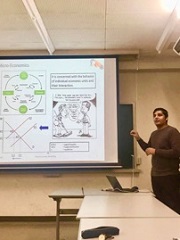 Mr. Madhu Sudhan Khanal
Mr. Madhu Sudhan Khanal
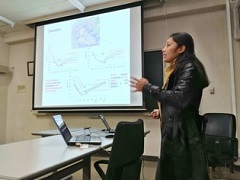 Ms. Ramita Bajracharya
Ms. Ramita Bajracharya
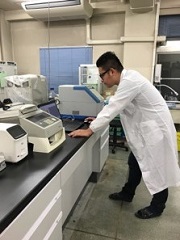 Mr. Ocean Thakali
Mr. Ocean Thakali
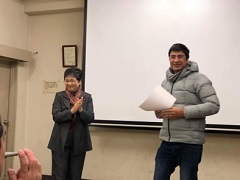 Mr. Milan Thapa
Mr. Milan Thapa
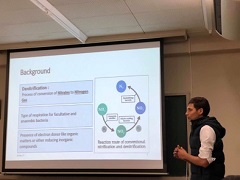 Mr. Rabin Maharjan
Mr. Rabin Maharjan
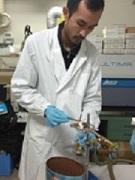 Mr. Sushil K.C.
Mr. Sushil K.C.
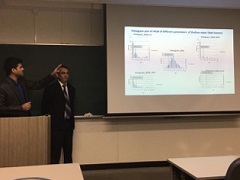 Mr. Anoj Khanal / Mr. Nabin Tiwari
Mr. Anoj Khanal / Mr. Nabin Tiwari
- About JICA
- News & Features
- Countries & Regions
- Our Work
- Thematic Issues
- Types of Assistance
- Partnerships with Other Development Partners
- Climate Change / Environmental and Social Considerations
- Evaluations
- Compliance and Anti-corruption
- Science and Technology Cooperation on Global Issues
- Research
- JICA Development Studies Program / JICA Chair
- Support for the Acceptance of Foreign HRs / Multicultural and Inclusive Community
- Publications
- Investor Relations
